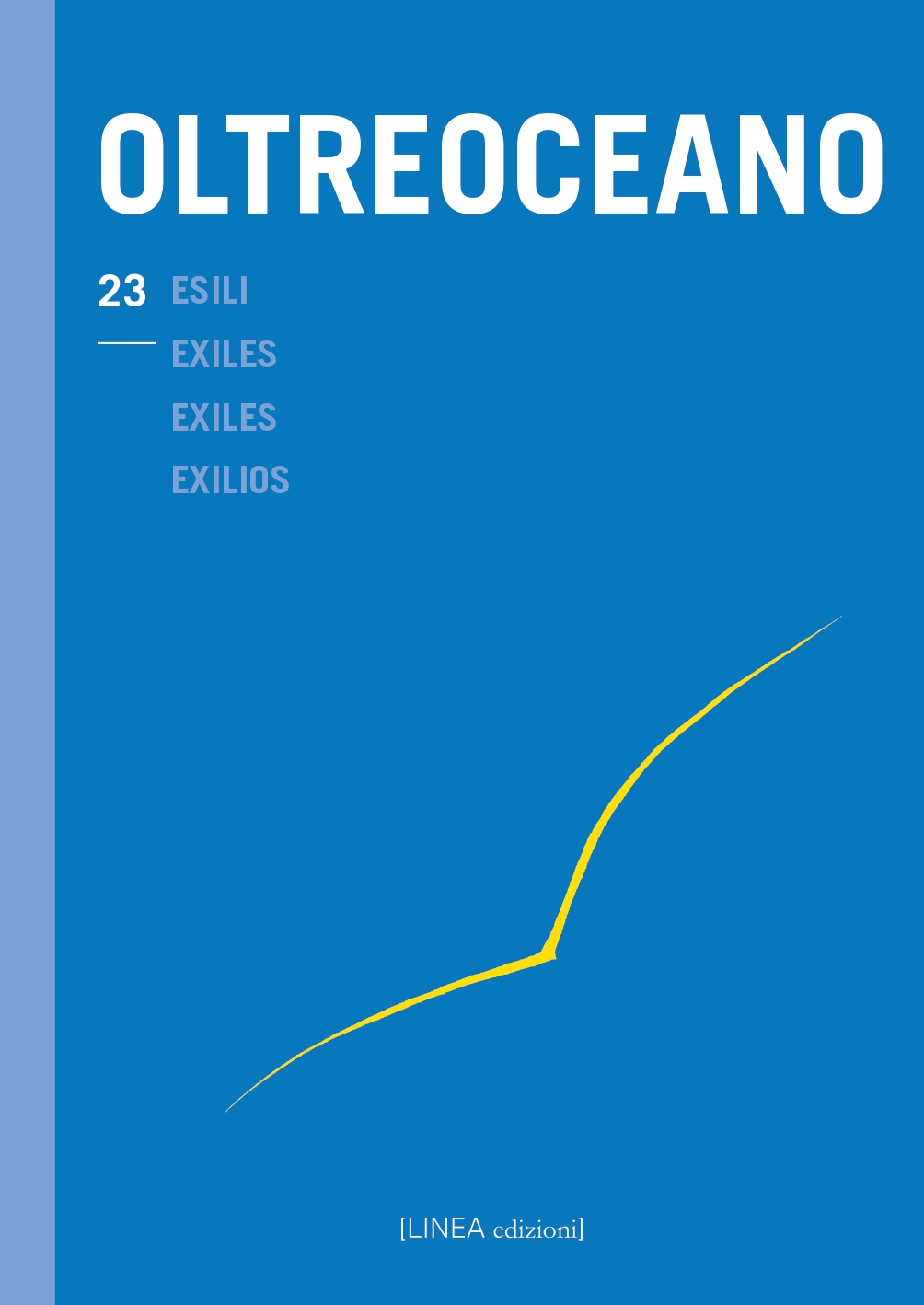Émile Ollivier’s Exiles
DOI:
https://doi.org/10.53154/Oltreoceano104Keywords:
Haitian Diaspora, Émile Ollivier, Nomadism, EnracinerranceAbstract
Migrant literature represents an important stage in the dynamics of Quebec literature, both scripturally and theoretically. The article first summarizes the structuring axiological elements of the Quebec literary field that, from the 1960s onwards, paved the way for the entry and integration of migrant authors into the Quebec canon. These include identity and cultural territorialization, felt to be incomplete by both Quebec authors (Jacques Ferron) and critics (Laurent Mailhot), and which Pierre Nepveu likens to migrant authors, emphasizing the similarities. The complimentary component of the process belongs to the Italo-Québécois and Haitians who, in the 1990s, thematized and theorized the exilic situation, transforming the perception of cultural and ethnic otherness into an existential, ethical and scriptural problematic translated by the concepts of nomadism and enracinerrance. Unlike his fellow exiles - Robert Berrouët-Oriol, Jean Claude Charles, Joël Des Rosiers - Émile Ollivier treats the exilic condition on two complementary levels. The first considers the nomadic-sedentary relationship from a historical perspective, noting the axiological overturn in favor of nomadism as the dominant human status in the postmodern world. The second deduces the philosophical consequences associated with writing. The discussion is illustrated by three works - the theoretical reflection Repérages (2001) and the two novels from the latest period Passages (1994) and La Brûlerie (2004). The analysis reveals the link between the exilic theme and the consequences Émile Ollivier draws from it for the structuring of spatiality, narration and the status of writing as a manifestation of the dynamics of the void. As an example of an integrating process, Émile Ollivier's poetics anticipates certain post-2000 trends in Quebec literature.
Downloads
References
Beckett, S. (1967): Têtes-mortes. Paris: Éditions de Minuit.
Berrouët-Oriol, R. (1986-1987): L’Effet d’exil. Vice Versa, 17, pp. 20-21.
Caccia, F. (1986): L’Altra riva. Vice Versa, 16, pp. 44-45.
Charles, J.-Cl. (2001). L’Enracinerrance. Boutures, 1, 4, pp. 37¬-41.
Chartier, D. (2003): Dictionnaire des écrivains émigrés au Québec (1800-1999). Québec: Nota bene.
Davaille, F. (2007): L’interculturalisme en revue. L’expérience de Vice Versa. Voix et Images, 23, 2, 95, pp. 109-122.
Des Rosiers, J. (1996): Théories caraïbes: poétique du déracinement. Montréal: Triptyque.
Ferraro, A. (2014): Écriture migrante et translinguisme au Québec. Venezia: La Toletta.
Ferron, J. (1970): L’Amélanchier. Montréal: Éditions du Jour.
Heidegger, M. (1967): Sein und Zeit. Tübingen: Max Niemeyer Verlag.
Kyloušek, P. (2005): Le pays incertain de Jacques Ferron. In M. Paliszkiewicz, A. Reczyńska, A. Śpiewak: Place and Memory in Canada: Global Perspectives / Lieu et mémoire: perspectives globales (pp. 249-258). Kraków: Polska Akademia Umiejętności.
Kyloušek, P. (2024): Centers and peripheries in Romance Language Literatures in the Americas and Africa. Leiden/Boston : 2024.
LaRue, M. (1996): L’Arpenteur et le navigateur. Montréal: Centre d’Études québécoises / Fidès.
Mailhot, L. (1980): Le roman québécois et ses langages. Stanford French Review, 4, 1-2, pp. 147-170.
Mills, S. (2016): Une place au soleil, Haïti, Les Haïtiens et le Québec. H. Paré (Trad.). Montréal: Mémoire d’encrier.
Moisan, Clément & Hildebrand, R. (2001). Ces étrangers du dedans. Une histoire de l’écriture migrante au Québec (1937-1997). Québec: Nota bene.
Nareau, M. (2011): La revue Dérives et le Brésil. Modifier l’identité continentale du Québec. Globe, 14, 2, pp. 165-184.
Nepveu, P. (1999): Écritures migrantes. In P. Nepveu, L’Écologie du réel. Mort et naissance de la littérature québécoise contemporaine (pp. 197-210). Boréal: Montréal.
Ollivier, É. (1991): Passages. Montréal: L’Hexagone.
Ollivier, É. (2001): Repérages. Ottawa: Leméac.
Ollivier, É. (2004): La Brûlerie. Montréal: Boréal.
Ricœur, P. (1990): Soi-même comme un autre. Paris: Seuil.
Downloads
Published
How to Cite
Issue
Section
License

This work is licensed under a Creative Commons Attribution-NonCommercial-ShareAlike 4.0 International License.
The authors undertake to comply with the following conditions, which are considered accepted at the time of submission of their contributions.
The sending of a text implies that it is unpublished and not submitted to be published elsewhere.
1. If accepted, the author shall confer on the publisher the right to publish and distribute it both in paper form and in the online electronic edition. The published articles will be downloadable and made available in open access.
2. Provided that it correctly indicates that the first publication took place in the journal Oltreoceano. Rivista sulle migrazioni the author has the right to: a) reproduce the article in separate extracts or collected in a volume; b) publish the article on their personal website or teaching site provided that these sites are of a non-commercial nature; c) deposit the article in online archives of a non-commercial nature, linked to the institution they belong to or as part of projects for the non-commercial dissemination and open access of scientific works.
The use of contributions by third parties, for commercial or otherwise unauthorized purposes, is not allowed. The publisher declines all responsibility for the unauthorized use of the material published in the journal.












